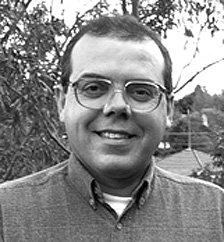By Pedro Oliveira
Originally printed in the MARCH-APRIL 2008 issue of Quest magazine.
Citation: Oliveira, Pedro. "Explorations: Theosophy and Orthodoxy" Quest 96.2 (MARCH-APRIL 2008): 68-69.
 HENRY S. OLCOTT, president and cofounder of the Theosophical Society, whose death centenary was commemorated on February 17, 2007, may have sounded the essential keynote of the work before the fledgling Theosophical Society when he said in his Inaugural Address at the Mott Memorial Hall in New York, November 17, 1875:
HENRY S. OLCOTT, president and cofounder of the Theosophical Society, whose death centenary was commemorated on February 17, 2007, may have sounded the essential keynote of the work before the fledgling Theosophical Society when he said in his Inaugural Address at the Mott Memorial Hall in New York, November 17, 1875:
We are of our age, and yet some strides ahead of it, albeit some journals and pamphleteers more glib than truthful, have already charged us with being reactionists who turn from modern light (!) to mediaeval and ancient darkness! We seek, inquire, reject nothing without cause, accept nothing without proof: we are
students, not teachers.
In "The New Cycle," Collected Writings, vol. XI, his colleague and coworker, Helena P. Blavatsky, may have gone a step further in declaring one of the central aspects of the Society's work: "In its capacity of an abstract body, the Society does not believe in anything, does not accept anything, and does not teach anything."
The above statements, by two principal cofounders of the TS, clearly delineate the fact that though deriving its name from the Greek word theosophia (divine wisdom); the Theosophical Society does not make of Theosophy an orthodoxy nor an ideology. In other words, the position of "official" Theosophical teacher has been declared vacant from the very inception of the Society! It encourages its members to inquire, to investigate, and to study for themselves the vast breadth and depth of the Wisdom Tradition and to come to their own realization of its eternal truths.
Alas, the energetic vision of the founders did not prevent some members over the decades from erecting pedestals to "authorities" in the Theosophical philosophy, going so far as to say who was right and who was wrong. But the Theosophical Society, as an organic body, has always refused to buy into the authority game and has remained faithful to its three Objects which point to a non-sectarian and non-dogmatic direction for its life and work.
At the very core of the great spiritual traditions of the world there is a compelling call: one must see with one's own eyes. When religion, philosophy, or even science become an ideology, that is, a set, irreversible, exclusivist worldview, the beauty and transformative power of direct seeing is absent and the forces of separation and suspicion grow stronger, thus making the world a darker place. When we see for ourselves any intrinsic truth, like suffering, it leads to a new understanding as well as to compassionate action, for it represents the awakening of a deeply integrated perception within ourselves called buddhi in the Theosophical tradition. In such a perception, seeing and acting are one.
As long as the Theosophical Society remains true to the spirit that animated its foundation it will remain relevant in a turbulent world. The words of Madame Blavatsky, in her message to the American Convention of 1888, deserve reflection and consideration:
Orthodoxy in Theosophy is a thing neither possible nor desirable. It is diversity of opinion, within certain limits, that keeps the Theosophical Society a living and a healthy body, its many other ugly features notwithstanding. Were it not, also, for the existence of a large amount of uncertainty in the minds of students of Theosophy, such healthy divergencies would be impossible, and the Society would degenerate into a sect, in which a narrow and stereotyped creed would take the place of the living and breathing spirit of Truth and an ever growing Knowledge.
Pedro Oliveira joined the Brazilian Section of the Theosophical Society in 1978 and worked in several capacities. He served as international secretary at Adyar between 1992 and 1996. In 2001, he was elected president of the Indo-Pacific Federation of the TS, and re-elected in 2004. Pedro works as education coordinator of the TS in Australia and has lectured extensively in Australia, the Indo-Pacific region, and other countries as well. This article is adapted from the Campbell Library Newsletter, March 2007.

